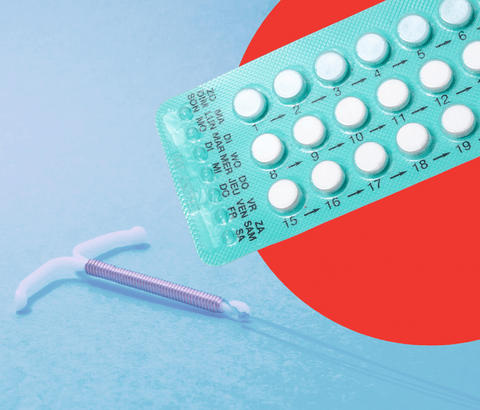We caught up with nutritionist, chef, doula and mother Jennifer Jolorte Doro. Jennifer helps parents support their hormones through ever stage of life, from general wellness to pre and postpartum.
Jennifer is the Cofounder and Chief Culinary Officer of Chiyo, where they support parents with a holistic, inclusive, and proactive approach to maternal care.

Tell us about your decision to start working with people on their fertility journey! What set you on this path?
Of course, personal experience - but also because our customers were asking us for this! Those who were way beyond their postpartum period were trying to conceive a second or third time around or looking for general hormone balance. Others were looking to optimize their nutrition during egg freezing.
Something unique about Chiyo is that you offer support for all stages of fertility, whether that’s general wellbeing, prenatal/trying to conceive, during pregnancy, or after birth. How do health and nutrition goals vary (or not) depending on which phase someone is in?
Nutrition plays a HUGE role in every stage but nutrition guidelines definitely vary dependent on stage. For example, if someone is interested in egg freezing - you need to think about optimal nutrition for egg health so including foods rich in antioxidants. We infuse our hormone balance/ fertility program with moringa, goji berries and brazil nuts - all key superfoods.
Your team is SO knowledgeable and skillful. What led you to come together and build Chiyo?
Our founder story is one that is so key to how we’ve built Chiyo. Irene, my cofounder, became inspired by her aunt’s postpartum period and her mom sending her very traditional herbs and tonics. She knew this needed to exist in the states but found that it was actually quite disjointed. While I was a private postpartum chef serving families postpartum, my background was in maternal health as a birth/postpartum doula, lactation counselor, pre/postnatal yoga and clinical nutritionist. We both bring unique experiences and skills along with our amazing advisors who help shape the brand, strategy and foundation of what we are today and how we continue to grow.

On your site, you share that nutrition dictates 80% of health and hormones are no exception. How does gut health influence hormonal health?
Gut health is SO important to nutrition! One of our favorite questions to ask during our intake onboarding is deciphering health through bowel movements. If you don’t have consistent bowel movements or the shape/consistency isn’t ‘normal’ ie. pebble like - it truly informs your overall health - maybe you aren’t hydrating, maybe you’re not absorbing food properly or maybe there are issues with stress or sleep that are impacting the way you’re absorbing nutrients or lack thereof. There are very KEY nutrients that play a part into proper hormone function, if you’re not absorbing these nutrients then its definitely affecting your ability to serve your hormones well.
Let’s dive even deeper on the gut-hormone connection. Working with people at a time where their hormones are shifting dramatically, do you see diet and gut health play a role in their journey?
Definitely! There are many studies that speak to this, so nutrition and gut health play a huge role. In a recent study, stress can play a role in gut and hormone function.
“Parasympathetic and vagal outputs to the intestine and stomach are altered after acute stress stimulation, which participate in the modulation of gut functions, including gut motility, permeability, acid secretion, and immune response. All these changes are involved in the modulation of the enteric environment which is associated with microbial colonization in the small intestine and colon [1]."
Essentially, any acute stress can modify the ability to digest properly and decrease immune function and then affect microbial colonization (your gut health) over time. As more people continue to deprioritize stress management, the more that it affects your overall health and of course your hormones.
A lot of us are hit with a barrage of diet culture. Phrases like “I’m trying to eat better” get thrown around but it seems like most people struggle to define “better.” If someone is truly seeking to eat in a way that supports their health, what would that look like?
The biggest issue we find with diet culture is calorie deficit or intermittent fasting-- these two concepts when done incorrectly, which is most of the time, can create huge issues with hormone balance. Eating consistent meals, balanced meals means at each meal time it consists of protein, fat, carbohydrates and the timing of meals are consistent. Skipping meals obviously contributes to fatigue, afternoon slump, brain fog and so much more. Start with eating breakfast, it doesn’t need to be what everyone else eats but find the foods that you actually enjoy or those in rotation you actually like to consume on a daily basis.
If you could give one piece of advice to someone who is struggling to piece together the hormonal puzzle, what would it be?
Prioritize your version of self care, incorporate acupuncture, cycle syncing your workouts, yoga, meditation and eating consistently. But don’t do everything at once-- start with one thing at a time and very slowly incorporate [it] into your daily life.
About Jennifer
Jennifer is a Clinical Nutritionist and Postpartum Private Chef. She is excited to bring her nutrient-focused spin on familiar and favorite foods to more families. As the mother of a three-year-old boy and a brand-new baby, she understands the motherhood journey firsthand. Jennifer holds an M.S. in Clinical Nutrition and is the Nutritionist at Oula Health. Additionally, she is a Certified Breastfeeding Counselor, Birth/Postpartum Doula and Pre/Postnatal Yoga Instructor. She is the Cofounder + Chief Culinary Officer of Chiyo.
References
[1] Sun LJ, Li JN, Nie YZ. Gut hormones in microbiota-gut-brain cross-talk. Chin Med J (Engl). 2020 Apr 5;133(7):826-833. doi: 10.1097/CM9.0000000000000706. PMID: 32132364; PMCID: PMC7147657.







